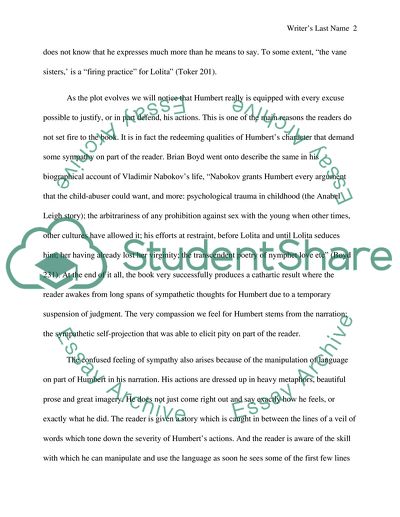Cite this document
(“Lolita by Vladimir Nabokov (the novel) Research Paper”, n.d.)
Retrieved from https://studentshare.org/literature/1554304-lolita-by-vladimir-nabokov-the-novel
Retrieved from https://studentshare.org/literature/1554304-lolita-by-vladimir-nabokov-the-novel
(Lolita by Vladimir Nabokov (the Novel) Research Paper)
https://studentshare.org/literature/1554304-lolita-by-vladimir-nabokov-the-novel.
https://studentshare.org/literature/1554304-lolita-by-vladimir-nabokov-the-novel.
“Lolita by Vladimir Nabokov (the Novel) Research Paper”, n.d. https://studentshare.org/literature/1554304-lolita-by-vladimir-nabokov-the-novel.


